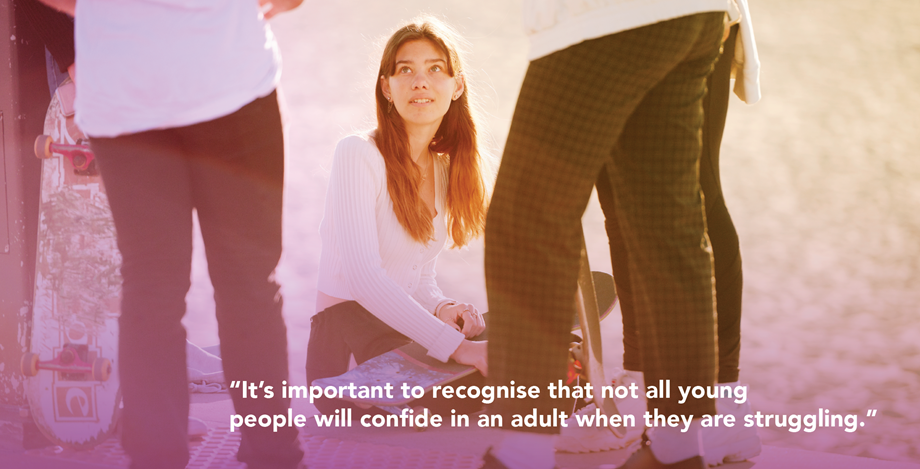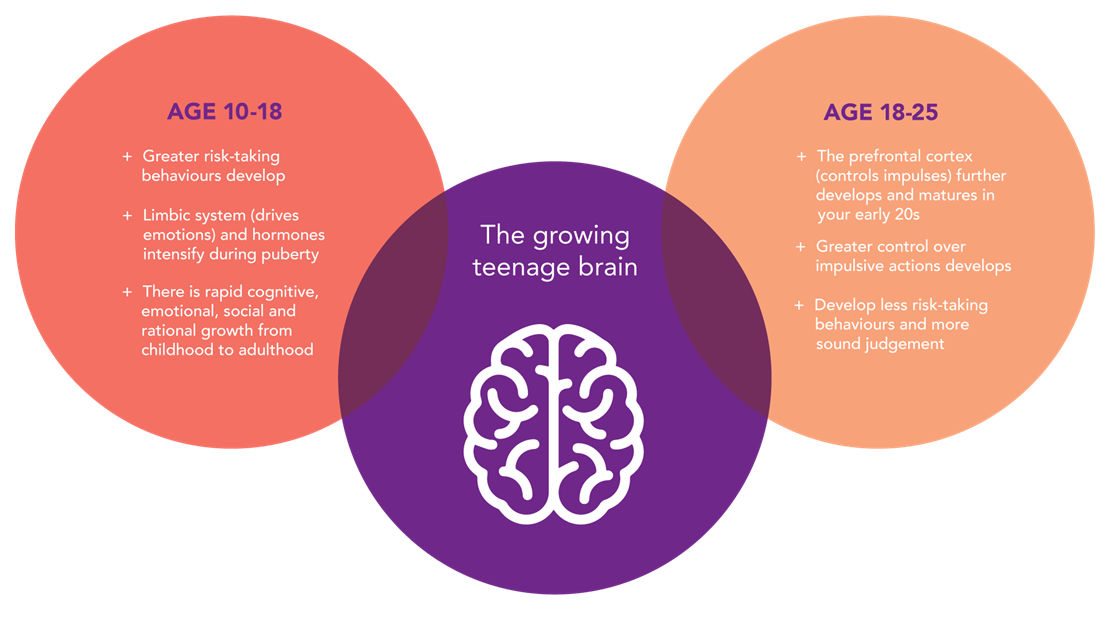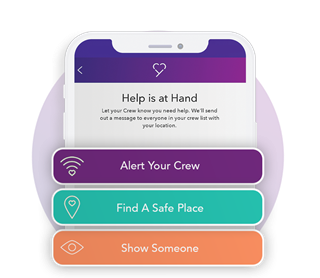Understanding their world: Empowering young people to open up about their mental health

Asking for help no matter how big or small the issue might be, is a hard thing to do.
As children transition from childhood to adolescence to adulthood, recognising and identifying that support is needed can be even harder. Major changes are happening internally to the body and the brain. Not only that, external influences are also shaping young people’s life experiences and expanding how they relate to themselves and the world around them. All this can feel like a minefield when trying to navigate complex emotions.

While many great resources explain how parents and trusted adults can better engage young people in conversations around mental health, it’s important to recognise that not all young people will confide in an adult when they are struggling.
So how can we better understand their world and lay the foundations so they know that support is at hand when they need help?
What’s going on in that teenage brain?
If you ever feel like your teenager seems to be on a different planet from you, you’re not alone!
Physical changes happen as children transition through to adolescence and adulthood, but there are also vital changes taking place in their brain. The brain controls the body’s activities, and during adolescence, the brain hasn’t physically matured.
The limbic system, which controls our behavioural and emotional responses, intensifies, making adolescents more prone to risk-taking behaviours and impulsive, emotional reactions. As we become adults, the prefrontal cortex, which controls our impulses, further matures, and we develop greater control over our behaviours and responses. So what may seem like a small issue to an adult can often feel like a big one to young people and manifest in an adverse emotional reaction.

Reasons why young people won’t always confide in their parents or a trusted adult
In addition to changes in the brain, many other changes are also happening. There is a significant influx of hormones in the body, and teenagers will also start to challenge how they see themselves and others as they build independence and make their own decisions. Pushing boundaries is common to discover more about who they are as a person, which can change how adolescents communicate with their parents and trusted adults.

Looking for people that understand their world
We can draw on our own experiences of being a teenager, but the truth is generational gaps make it impossible to know what it is like to be a teenager in this present time. Young people are looking for people that understand their world. Shaped by issues ranging from political, social and environmental factors unique to this moment, these influences tend to bond people with their peers born in a similar time. A strong peer group is important to ensure young people open up about these challenges and connect with others who understand their world.
Tools you can use as a parent to empower your child to seek help
When things start to feel like they are getting too much, it is essential that young people find their own ways to get help. While they may open up to you or a trusted teacher, family member or friendship group, in many cases, they won’t know how to.
So how can we equip them with the skills and resources required to seek help before they even know they need it?
That’s where preventative tools like YourCrew come in.
Building strong support networks
Ensuring young people have a safe space to be themselves and know they have a strong support network to whom they can reach out when things get tough is vital. Identifying their true friends and adult supporters is a crucial first step in ensuring they have a safe network that will always have their back. YourCrew empowers users to identify this network by allowing them to invite trusted people to Crew for them.
Tracking moods and understanding patterns
Enabling young people to better understand their moods and negative thought patterns is essential for stopping smaller things from becoming big problems. If they can identify continuous periods of low moods and bad days, they are more likely to understand something may be wrong and seek help. Providing tools like personal journals and mood-tracking calendars, as YourCrew does, can play a huge role in helping young people address their thoughts and feelings head-on so they are more likely to take action when they see thought patterns forming. This is particularly important for those young people who are reserved and less likely to speak up and ask for help, because their Crew can also see their calendar and will get a notification if their moods are consistently at extreme levels. This way, YourCrew can prevent youth from falling through the cracks.
Creating access to helpful resources and immediate emergency support
When things start to feel too much, empowering young people to know who and where to turn when they need support can help save a situation from escalating. Many helpful organisations provide support, but having them all in one place makes it easier and less overwhelming to know where to look. YourCrew provides links and live phone numbers to helpful resources, safety plans and help guides all in one app, and if there is an emergency, YourCrew links to third-party crisis support lines at the click of a button.

So while it’s essential to have open communication to support your child through the ups and downs of life, equipping them with a preventative tool like YourCrew adds another layer of safety by ensuring our young people feel safe and empowered to access the support they need at the right time.
Need support now?
The following YourCrew resources are a good place to start to learn more about what to do in certain situations and how to support a young person in need: